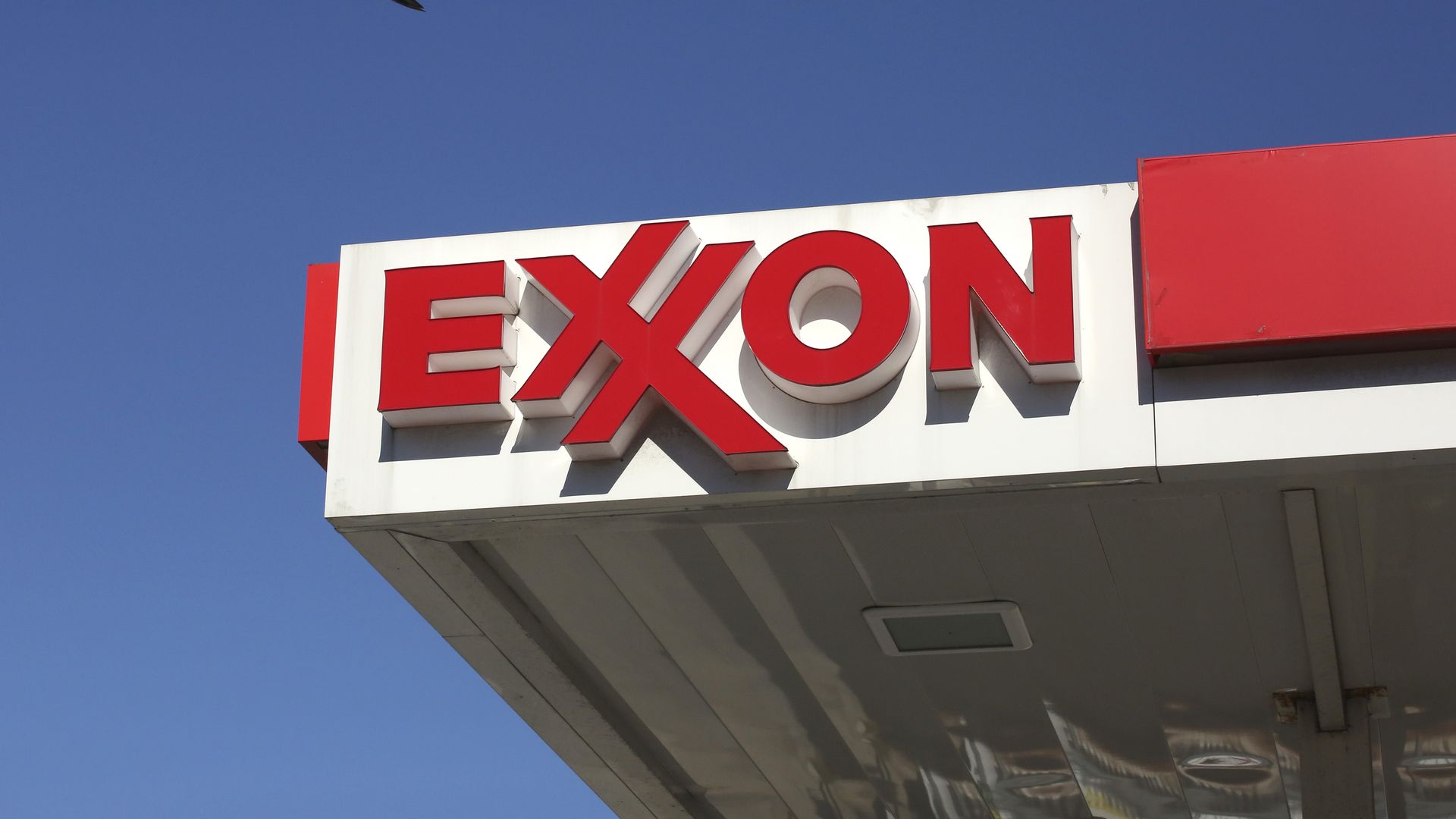Exxon working to push trade group on climate change
Add Axios as your preferred source to
see more of our stories on Google.

Photo: Kena Betancur/VIEWpress/Corbis via Getty Images
ExxonMobil is working to encourage a major Washington lobbying group to support policies addressing climate change, according to a top company official.
Why it matters: Facing public, investor and legal pressure, oil companies are increasingly backing action on the issue of climate change while still remaining members of trade associations whose positions don’t align with that shift. At issue here is the American Fuel & Petrochemical Manufacturers, whose focus is oil and gas refining.
Driving the news: Royal Dutch Shell, under pressure from activist investors, announced earlier this year it was leaving AFPM, citing "material misalignment"" on climate policies. Exxon is opting to stay and try to influence the group’s positioning, Nick Schulz, Exxon’s director of stakeholder engagement, said at a recent conference.
Where it stands: "They are very aware of what our view is and we are trying to get AFPM to a different position,” said Schulz. “There are other members of AFPM that have a very different view on this."
- Schulz, who made these comments at a breakfast hosted by The Atlantic at the Aspen Ideas Festival last week in Colorado, said AFPM’s work on other issues — namely safety — are valuable to Exxon.
- An Exxon spokesperson said the company doesn't support AFPM's position against increasing fuel efficiency standards.
Between the lines: Exxon also supports the 2015 Paris Climate Agreement and a carbon tax. Those positions ring hollow to many environmentalists who accuse the oil giant of having muddled the science on climate change decades ago in an effort to stymie action.
- Yet Exxon also faces skepticism among smaller oil companies and some conservative interest groups for what they see as a massive corporation trying to push out its smaller competitors via government policy.
One level deeper:
“We also think working within the organizations trying to move them along is better than the alternative, which is what some companies have done, which is you exit the trade association. But, then you lose your ability to influence in any way shape or form, which doesn’t mean you don’t ultimately take that step some time, but we think that sometimes that can be counterproductive in the long run.”— Nick Schulz, Exxon's director of stakeholder engagement
For the record: A spokesman for AFPM said the group has never taken an official position on the Paris Climate Agreement, and is committed to reducing carbon emissions by making more efficient transportation fuels. “We continue to work with our members to evaluate various proposals and the role we can play in the overall effort,” the spokeswoman said by email.
Go deeper: Inside Exxon’s climate strategy
